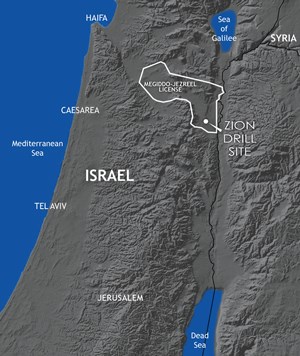Zion updates status of onshore wells in Israel
(WO) — Zion Oil and Gas is steadily moving forward with operational plans in anticipation of the new license being granted very soon. The company’s most recent updates have alluded to its intentions of re-entering the MJ-1 well.
Exploration in an unproven area begins with examining all the available technical information to assess if the critical elements of an active petroleum system are present. The elements include:
- The presence of reservoir rocks (sandstones, limestones, dolomites) capable of being containers for oil and gas.
- The likelihood of having organic source rocks which could generate hydrocarbons.
- And a basin where the source rocks could be buried deep enough to mature into oil and gas, given a sufficiently high thermal gradient leading to a burial temperature in the generation window for oil and gas.
Oil and gas generated and expelled from the source rocks migrate upward in strata and along faults to a structure that can be a trap (like an anticline) for the hydrocarbons, if a good seal rock exists above the trap.
Looking at all the critical data, the Zion geological and geophysical (G&G) team determined that the right components of a petroleum system exist in this area. At this point, Zion applied for the Megiddo-Jezreel license.
Zion acquired new 2D seismic data on the granted license and reprocessed existing 2D seismic. The early 2D work allowed Zion to map a trap, and the MJ-1 well was drilled. Of particular importance in MJ-1 was the strong show of light oil and condensate while drilling in the Triassic.
Zion then acquired 3D seismic data to understand the structure further, and the MJ-2 well was drilled. The company then acquired well logs in MJ-2, and a consulting petrophysicist identified promising zones of hydrocarbon pay.
At this point, Zion brought in consulting completion engineers to apply innovative stimulation techniques in these potential pay zones, with the goal of obtaining commercial flowrates. Zion has been unsuccessful to date.
Detailed analysis of the data from MJ-1 and MJ-2 by Zion’s G&G team has led to the conclusion that MJ-1 is a logical candidate for re-entry to attempt to get the zone with the strong show to flow using the stimulation techniques employed in MJ-2. These techniques should also enable us to overcome the near-wellbore challenges.
Zion also will use new and focused perforation methods to overcome these challenges and potentially encourage MJ-1 to flow while simultaneously allowing Zion to evaluate previously untested zones for further review and testing.



